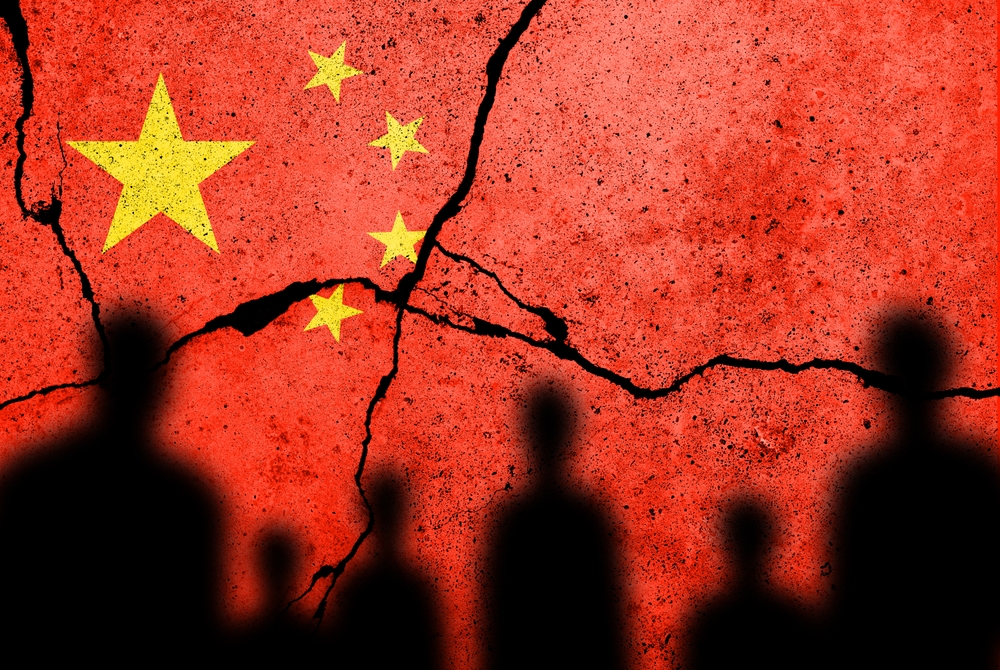For decades, China – with its double-digit GDP growth – was a seemingly inexhaustible engine for the world economy.
No longer.
Sure, China is still the world’s second-largest economy.
But, as I wrote in a column 11 months ago, the country is no longer investable, in my view.
This is a tragic development for the Chinese people.
Thirty years ago, I hoped that as that country liberalized economically, it would begin to liberalize politically.
That has not happened.
In fact, China is moving in the opposite direction. And that move is accelerating.
As a result of political developments over the last year, I don’t expect to own or recommend a China-based company again. Ever.
(Or, at least, not while President Xi Jinping and his merry band are in power.)
It’s not about the economic problems there, although there are plenty of those.
China’s workforce is shrinking. Its population is aging. Its birth rate is falling.
The property boom there has turned into a bust. Deflation – a self-reinforcing problem – has taken hold. And with prices falling, consumers won’t spend.
Tourism has collapsed. Exports are crashing. (They fell 12% in June alone.) And massive construction debts are mounting.
According to Bloomberg, Mexico even displaced China this year as our largest trading partner.
This is not just a one-time decline.
Xi’s new economic strategy – which prioritizes the Communist Party over free markets and growth – will continue to cost China dearly.
The fatal conceit of central planners is that a bunch of smart, “disinterested” bureaucrats can oversee and manage a complex, fast-changing economy.
They can’t. It has never happened once anywhere in the history of the world. Yet the Chinese government is intent on proving it again.
Last year, the Communist Party arbitrarily cracked down on various industries to curb what Xi calls “the disorderly expansion of capital.”
(He apparently doesn’t understand what economist Joseph Schumpeter called “creative destruction,” an inevitable consequence of economic dynamism. Old companies and technologies inevitably fall to the new.)
As a result of his heavy-handed policies, businesspeople and investors are giving China a miss.
Beijing began the year by calling 2023 the “Year of Investing in China.”
Instead, the opposite is happening. Foreign direct investment in China fell to $20 billion in the first quarter from $100 billion last year.
An 80% drop! And the outflow continues.
Goldman Sachs economists predict outflows from China this year will cancel out investment going into the country – a stunning reversal for a country that has seen a huge net inflow for more than four decades.
China’s economy depends on foreign investment and expertise for innovation and to maintain productivity.
But money and talent are fleeing.
China’s GDP growth has slowed dramatically since the early 2010s.
And an expected economic rebound – after the draconian COVID lockdowns – has not appeared.
In June, the Chinese government released a shocking piece of data: A record 21.3% of Chinese citizens between the ages of 16 and 24 in cities were unemployed.
As a result, the government took prompt action: It decided to suspend future publication of the urban youth unemployment rate.
This is what happens when the primary political goal is not improving the lives of citizens but extending the reign of the party.
The Chinese Communist Party (CCP) well understands that disaffected young people concentrated in big cities can challenge authority.
Yet instead of creating economic programs to meet the needs of frustrated young people, it has doubled down on repression.
The CCP has cracked down on intellectuals, rights lawyers and activists – essentially anyone with dissenting views.
Those suspected of challenging the party have been rounded up or had their organizations disbanded.
And the government is using everything from widespread security cameras to cellphone tracking to facial recognition technology to monitor suspected individuals’ movements and thoughts.
This totalitarianism has been so thorough that China is now increasingly compared to North Korea.
Xi would like to contain the fallout from a worsening economy. But he has an insurmountable problem.
Financial markets can’t be contained or controlled. And the world’s judgment on the CCP’s economic policies is plain for all to see.
Below is a chart that compares the main China stock index with the S&P 500.
.jpg)
As you can see, U.S. equities have outshined their Chinese counterparts by a staggering margin. Since the start of 2021, the main stock index of China, the Shanghai Stock Exchange Composite Index, has declined by more than 10% while the S&P 500 has gained more than 18%.
One result of this dismal performance is that new emerging market indexes are coming out that exclude China.
Since last year’s fourth quarter alone, asset managers like Goldman Sachs, Putnam, WisdomTree and others have brought out 10 exchange-traded and mutual funds that shun China stocks.
Not surprisingly, these funds are beating the China index. (A low bar given the country’s miserable returns.)
Chinese stocks are some of the cheapest in the world. But I wouldn’t touch them with a barge pole.
Low valuations are the result of weak productivity, declining sales and disappointing earnings.
In short, “autocracy risk” is now in the forefront of investors’ minds.
China is not just a suboptimal investment destination. It is a potential black hole for world capital.
When Russia invaded Ukraine, the ruble plunged, the Russian economy tanked and the country’s equities became untradable.
It’s a fantasy to believe that something similar wouldn’t happen if China made a grab for Taiwan.
With Xi in power, however, and looking to distract his citizens from a historic economic decline, it’s not beyond the realm of possibility.
I’m not suggesting that the Chinese market won’t experience short-term rallies from here – or even a full-fledged bull market.
But better investment returns can be found in plenty of other places… with a whole lot less risk.
